
 |
| (file photo) |
When Angelina Jolie, often described in celebrity magazines as the "world's most beautiful woman," decided at the age of 38 to have a double mastectomy because she was genetically susceptible to breast cancer, Chinese women were among those who wondered whether they too might unknowingly be susceptible to breast cancer - insiders say that the number of women in China requesting genetic screenings to identify whether they have risk-factor genes increased in the wake of Jolie's announcement.
However, in China, these screenings remain on the fringe of the medical sector. Hospitals rarely conduct them as they are outside of the government-approved treatment approaches, and the research related to gene mutations causing breast cancer in Chinese women remains patchy at best due to genetic differences.
While many medical professionals have poured cold water on the idea of Chinese women identifying risk-factor genes and using mastectomies to reduce the risk of breast cancer, a growing number of voices are suggesting that it may be a more realistic option than mainstream Chinese medical opinion suggests.
Chinese characteristics
Fears that Jolie's figure would be damaged were allayed when she emerged triumphant from the procedure and appeared in public in June. Breast implants had ensured that her figure remained unchanged, and she was praised for putting her health first and setting an example for women.
In an article published in The New York Times on May 14, Jolie wrote that she found through a genetic test that she carries a mutational gene which increases her risk of developing breast cancer to 87 percent, and ovarian cancer to 65 percent. Through the surgery, she was able to reduce her chances of developing breast cancer to 5 percent.
However, these kinds of statistics are impossible to ascertain in China, due to the lack of research and the different genetic makeup of Chinese women.
So while Jolie encouraged other women to take the initiative and become fully aware of any genetic risk factors they may carry, limited avenues for genetic screenings in China mean that it's more difficult for women to undergo these tests.
Wang Yu, a breast cancer doctor from the Tongren Hospital in Beijing, told the Global Times on Thursday that it's not realistic to recommend that women undergo genetic tests as women in China have a lower likelihood of developing breast cancer. She also pointed out that there isn't an authoritative organization or set of standards for genetic screenings.
According to the US Center for Disease Control, the incidence rate of breast cancer in the US is roughly 100 out of 100,000 women each year, though the rate varies according to race. In China, the rate is less than 30 out of 100,000.
Most doctors in China stress early detection of cancer as the best option.
"In China, breast cancer screenings are practical and important, and have been carried out for years," said Wang. "If the cancer is spotted at an early stage, patients can spend less money on treatment and the rate of successful treatment is high."
She added that the high cost of the genetic tests and the lower rates of breast cancer influenced the government's consideration in terms of investing in infrastructure to deliver genetic tests.
Ouyang Tao, chief physician specializing in breast cancer at the Beijing Cancer Hospital, said in a televised interview that he didn't encourage people to have genetic screenings, because even if genetic risk factors are detected, doctors are still uncertain as to whether they are likely to lead to breast cancer, or how effective mastectomies would be as a preventative measure. This ultimately means doctors are unable to give advice in these instances and detection of faulty genes would only cause patients to panic.

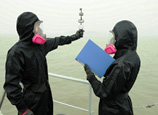
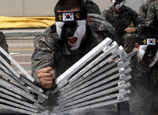

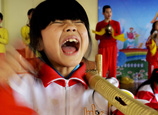
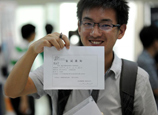

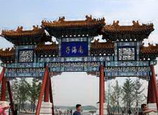









 Developer razes historic Guangzhou structures
Developer razes historic Guangzhou structures


![]()
